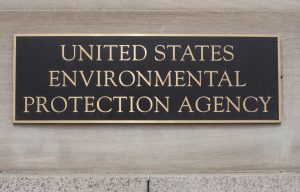Since 1979, commercial general liability (CGL) insurers have relied on the New Jersey Supreme Court case of Weedo v. Stone-E-Brick, Inc. and its progeny to argue that a subcontractor’s defective work can never qualify as an “occurrence” under a standard form ISO CGL policy. This argument is contrary to both the language of standard CGL policies and the trend in recent case law, but courts in New Jersey and elsewhere have continued to cite Weedo for this proposition. With its new decision in Cypress Point Condominium Association, Inc. v. Adria Towers, LLC, the New Jersey Supreme Court has now finally relegated Weedo to its proper status as an historical footnote based on outdated policy language.

Cypress Point involved claims for rain water damage to a condo building. When the condo association began noticing the damage, it brought claims against the developer/general contractor and several subcontractors. The association alleged that the subcontractors’ defective work on the exterior of the building allowed water leaks that damaged steel supports, sheathing and sheetrock, and insulation. When the developer’s CGL insurers refused to cover the claims, the association sued the insurers, seeking a declaration that the association’s claims against the developer were covered.
 Policyholder Pulse
Policyholder Pulse



 Thus, it is imperative that contractors have the right pollution coverage in place to remain secure and profitable.
Thus, it is imperative that contractors have the right pollution coverage in place to remain secure and profitable.
 insured,” to require collection of the full amount of primary polices in order to exhaust them. The Zeig court emphasized that a compromise payment by the primary insurer discharges the limits of the primary coverage, while the excess insurer is unharmed, since it must pay only the amount exceeding the attachment point of its policy.
insured,” to require collection of the full amount of primary polices in order to exhaust them. The Zeig court emphasized that a compromise payment by the primary insurer discharges the limits of the primary coverage, while the excess insurer is unharmed, since it must pay only the amount exceeding the attachment point of its policy.
 duty to defend a contractor who should have expected property damage resulting from its use of certain equipment on a construction project. The decision cautions contractors around the country to consider the expected consequences of their on-site actions to avoid arguments from insurers that any resulting damages are not accidental.
duty to defend a contractor who should have expected property damage resulting from its use of certain equipment on a construction project. The decision cautions contractors around the country to consider the expected consequences of their on-site actions to avoid arguments from insurers that any resulting damages are not accidental. Most of the time, such insurer demands are unjustified. But companies should understand when and under what circumstances insurers might seek reimbursement or recoupment of defense costs so they can avoid agreeing to do so unnecessarily or at least plan in advance financially.
Most of the time, such insurer demands are unjustified. But companies should understand when and under what circumstances insurers might seek reimbursement or recoupment of defense costs so they can avoid agreeing to do so unnecessarily or at least plan in advance financially. The particular information request at issue in Ash Grove Cement is known as a “104(e) letter,” which is issued by the EPA under section 104(e) of the Comprehensive Environmental Response, Compensation and Liability Act of 1980 (CERCLA). As companies that have owned or operated a contaminated site know from experience, a 104(e) letter or a similar request under state environmental law typically is the first step in a regulatory enforcement process under which they face strict and retroactive liability for the costs of investigating and cleaning up the site. The ruling in Ash Grove Cement means that defense cost coverage begins at this critical juncture and continues until site investigation and cleanup is completed.
The particular information request at issue in Ash Grove Cement is known as a “104(e) letter,” which is issued by the EPA under section 104(e) of the Comprehensive Environmental Response, Compensation and Liability Act of 1980 (CERCLA). As companies that have owned or operated a contaminated site know from experience, a 104(e) letter or a similar request under state environmental law typically is the first step in a regulatory enforcement process under which they face strict and retroactive liability for the costs of investigating and cleaning up the site. The ruling in Ash Grove Cement means that defense cost coverage begins at this critical juncture and continues until site investigation and cleanup is completed. That was the message a federal magistrate judge in the Eastern District of New York delivered when she ruled that Certain Underwriters at Lloyd’s had waived attorney-client privilege by communicating with their counsel through a London broker.
That was the message a federal magistrate judge in the Eastern District of New York delivered when she ruled that Certain Underwriters at Lloyd’s had waived attorney-client privilege by communicating with their counsel through a London broker.